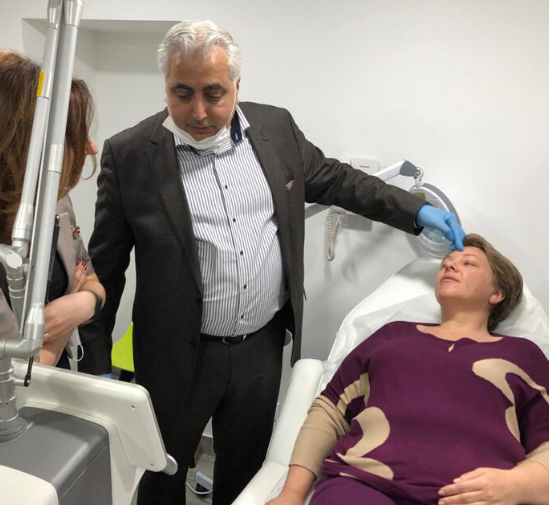 25th March 2024
25th March 2024
Which Skin Pigmentation Treatment Is Right For Me?
Skincare is an intricate science. Pigmentation issues are among the most common concerns and can cast shadows on one’s complexion, impacting confidence and self-esteem. However, with advancements in dermatological treatments, there’s renewed hope for overcoming the challenges posed by certain conditions and achieving clearer, radiant skin. In this blog, we navigate through a comprehensive guide to skin pigmentation treatment options, shedding light on the latest innovations and personalised approaches tailored to individual needs.
Understanding Pigmentation
Skin pigmentation encompasses a spectrum of conditions, from hyperpigmentation, characterised by dark patches, to hypopigmentation, which presents as lighter areas. Professor Firas Al-Niaimi emphasises the importance of understanding the underlying causes of pigmentation issues, which can range from sun exposure and hormonal fluctuations to genetic predispositions. He guides patients towards targeted skin pigmentation treatment that addresses their unique concerns.
Laser Therapies: Precision In Pigmentation Correction
Among the array of treatments available, laser therapies stand out as powerful tools for pigmentation correction. High Intensity Focused Ultrasound (HIFU) treatments have gained popularity for their ability to target specific layers of the skin with precision, stimulating collagen production and promoting even tone and texture. Some more severe symptoms may require a more intense skin pigmentation treatment with more targeted and powerful lasers. Professor Al-Niaimi’s expertise in laser therapies ensures that patients receive tailored treatments that address their specific pigmentation issues, resulting in clearer, more radiant skin.
Microneedling: Stimulating Skin Renewal
Microneedling, also known as collagen induction therapy, is a minimally invasive procedure involving the use of fine needles to create controlled micro-injuries on the skin’s surface. As the skin heals, collagen production is stimulated, leading to improved texture, tone and pigmentation. Microneedling can be particularly effective for treating hyperpigmentation caused by sun damage, acne scars and melasma. Under the expert guidance of Professor Al-Niaimi, microneedling becomes a powerful tool in revitalising the skin and achieving a more balanced complexion.
Chemical Peels: Rejuvenating The Skin’s Surface
Chemical peels are another skin pigmentation treatment that offers another avenue for rejuvenating the skin and addressing pigmentation concerns. By applying a chemical solution to the skin, these treatments exfoliate the outer layers, revealing fresh, evenly toned skin beneath. Professor Al-Niaimi employs a meticulous approach to chemical peels, selecting the appropriate formulation and concentration based on the patient’s skin type and pigmentation severity. The result is a brighter, more luminous complexion that exudes confidence.
Topical Solutions: Nurturing Skin Health From Within
In addition to in-clinic treatments, topical solutions play a vital role in managing pigmentation issues and promoting skin health from within. Professor Al-Niaimi recommends a personalised skincare regimen tailored to each patient’s needs, which may include ingredients such as retinoids, vitamin C and hydroquinone. These topical solutions work with in-clinic treatments to optimise results and maintain long-term skin health.
Schedule Your Skin Pigmentation Treatment
As you embark on your journey towards clearer, radiant skin, trust in the expertise of Professor Firas Al-Niaimi to guide you every step of the way. By offering insights into the latest advancements in pigmentation treatments and employing personalised approaches tailored to individual needs, Professor Al-Niaimi ensures that each patient achieves their desired outcomes.
Book a consultation today and take the first step towards taking control of your skin and managing pigmentation issues to reveal the luminous complexion you deserve.
Be sure to follow Professor Firas on Instagram for regular updates, news and advice.
Back to blog





